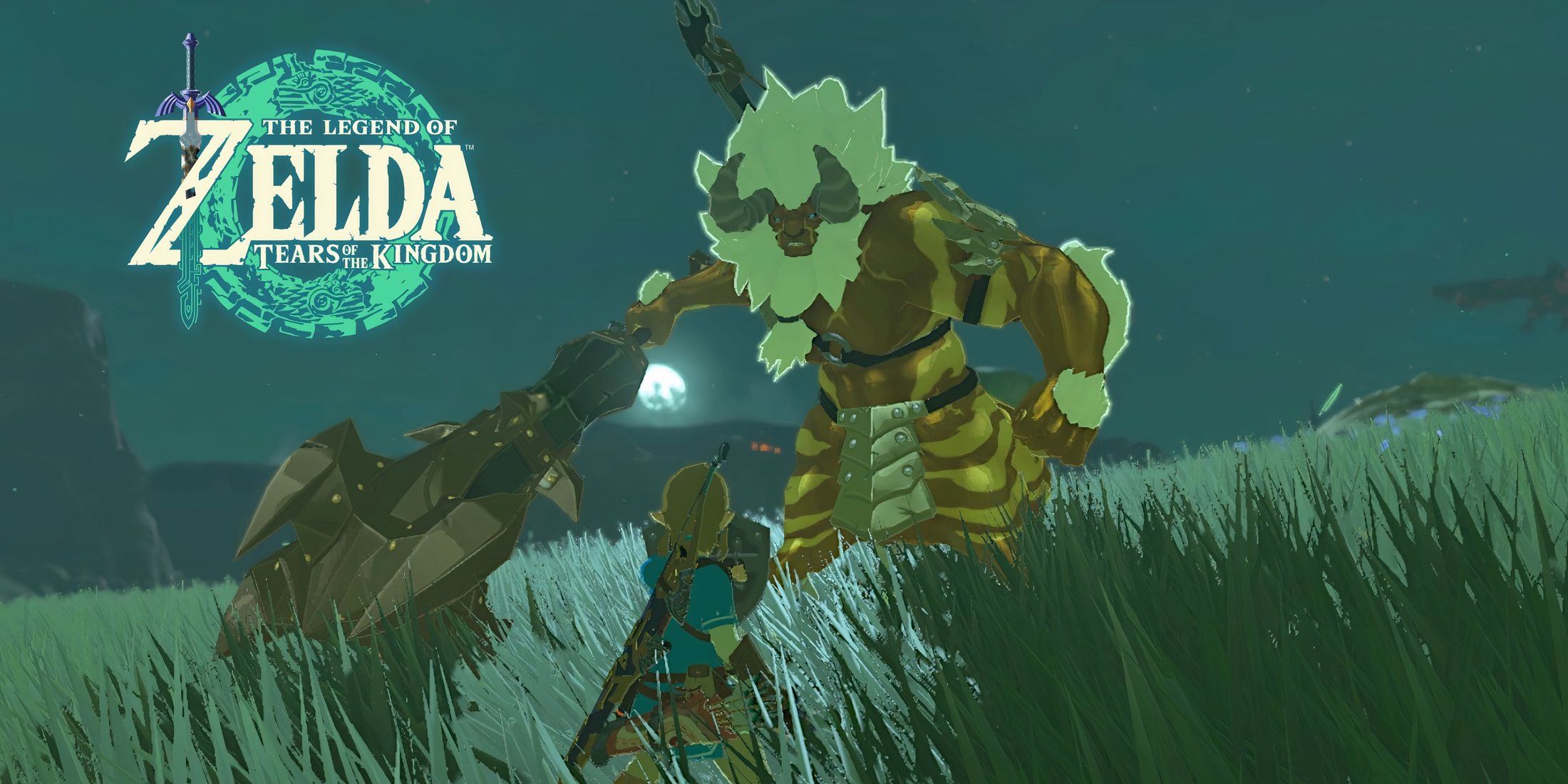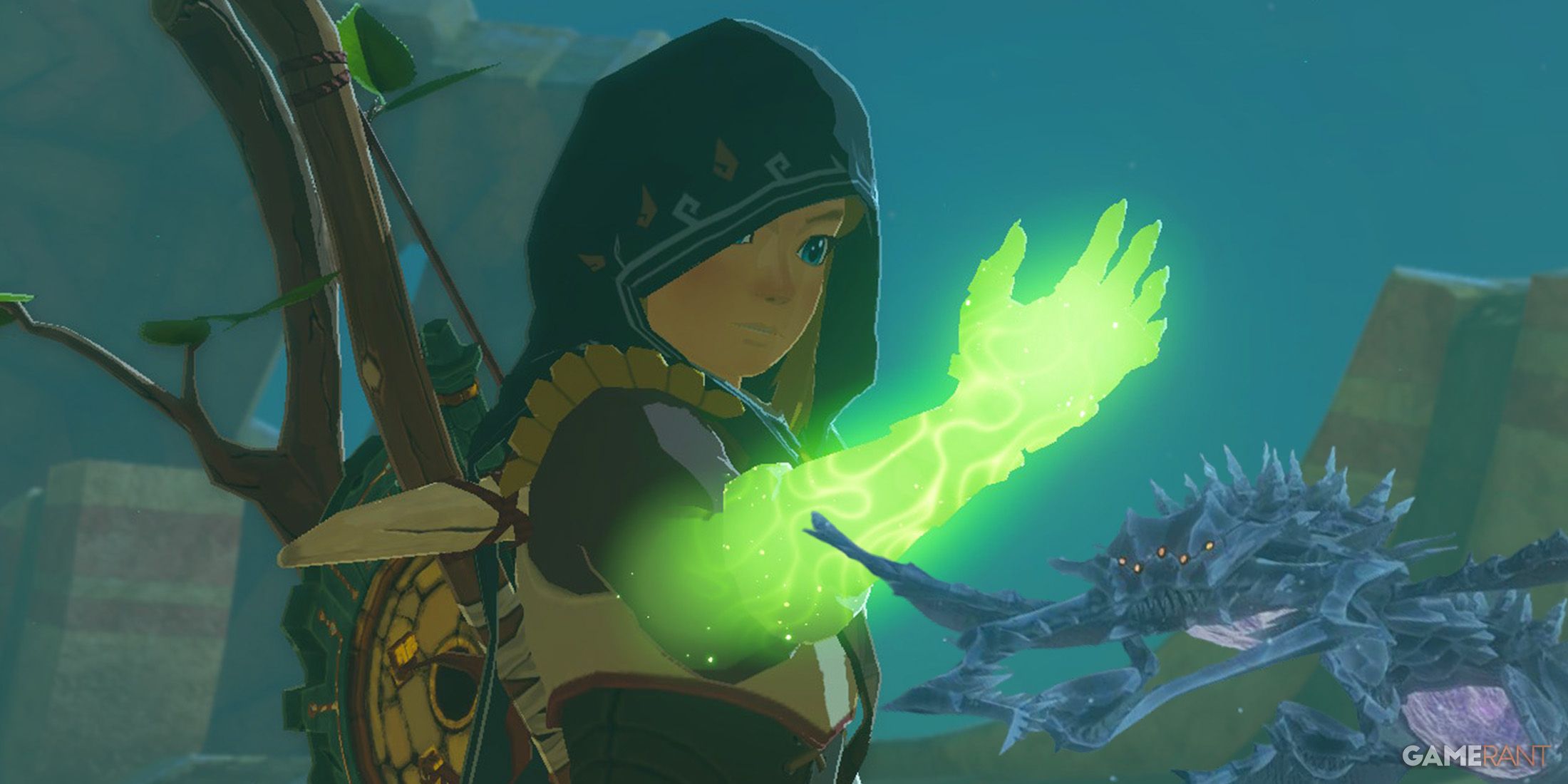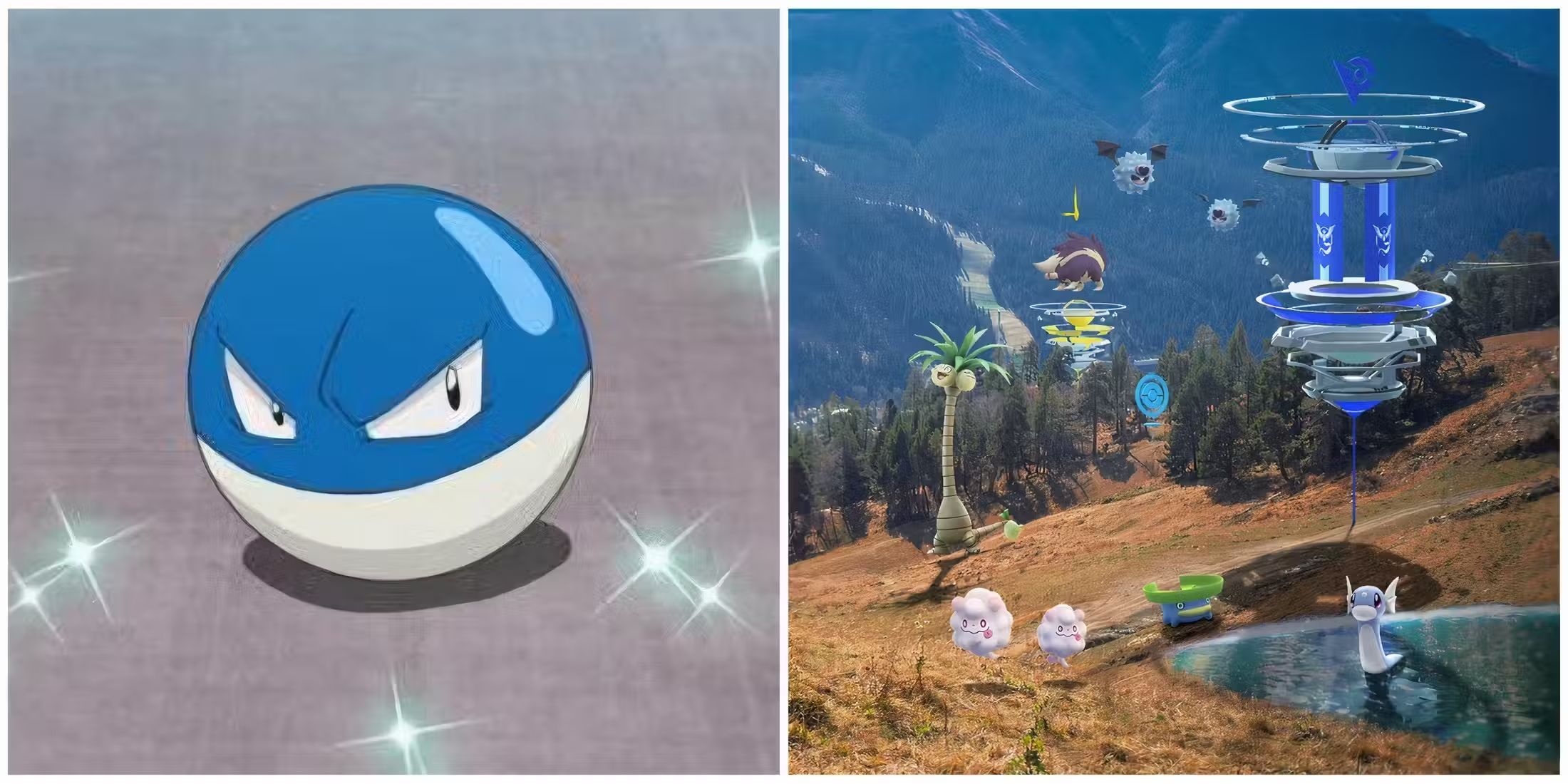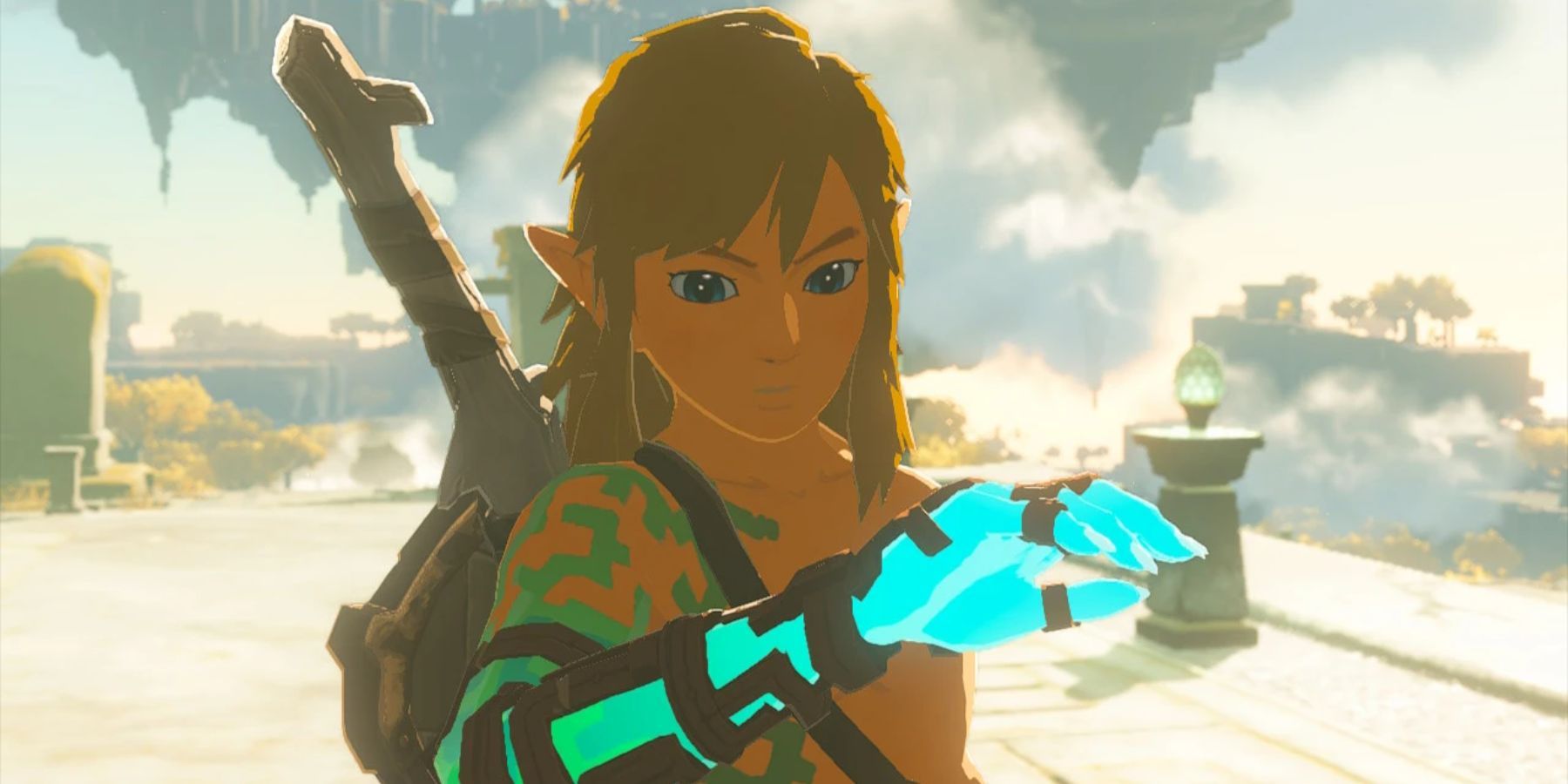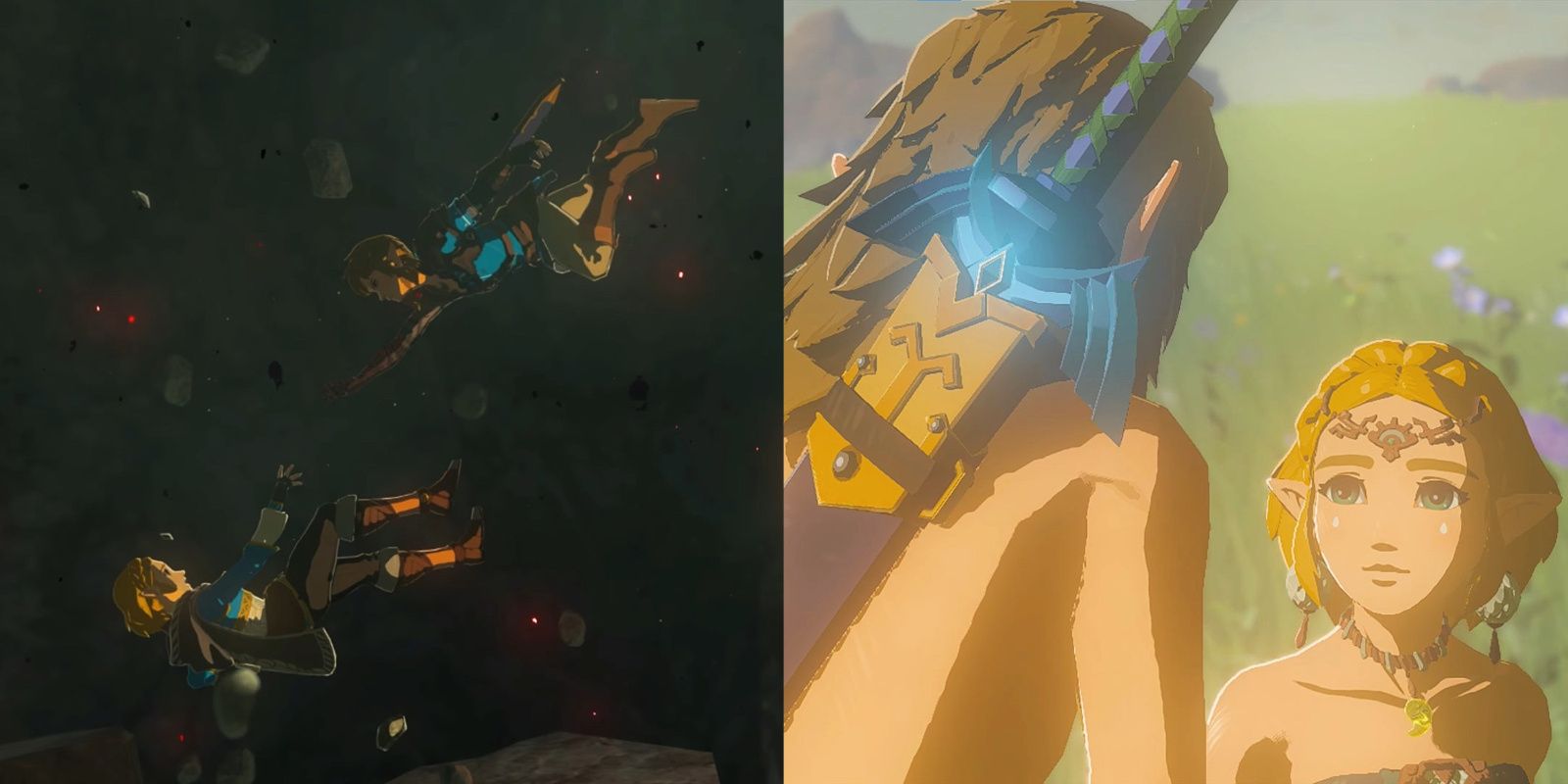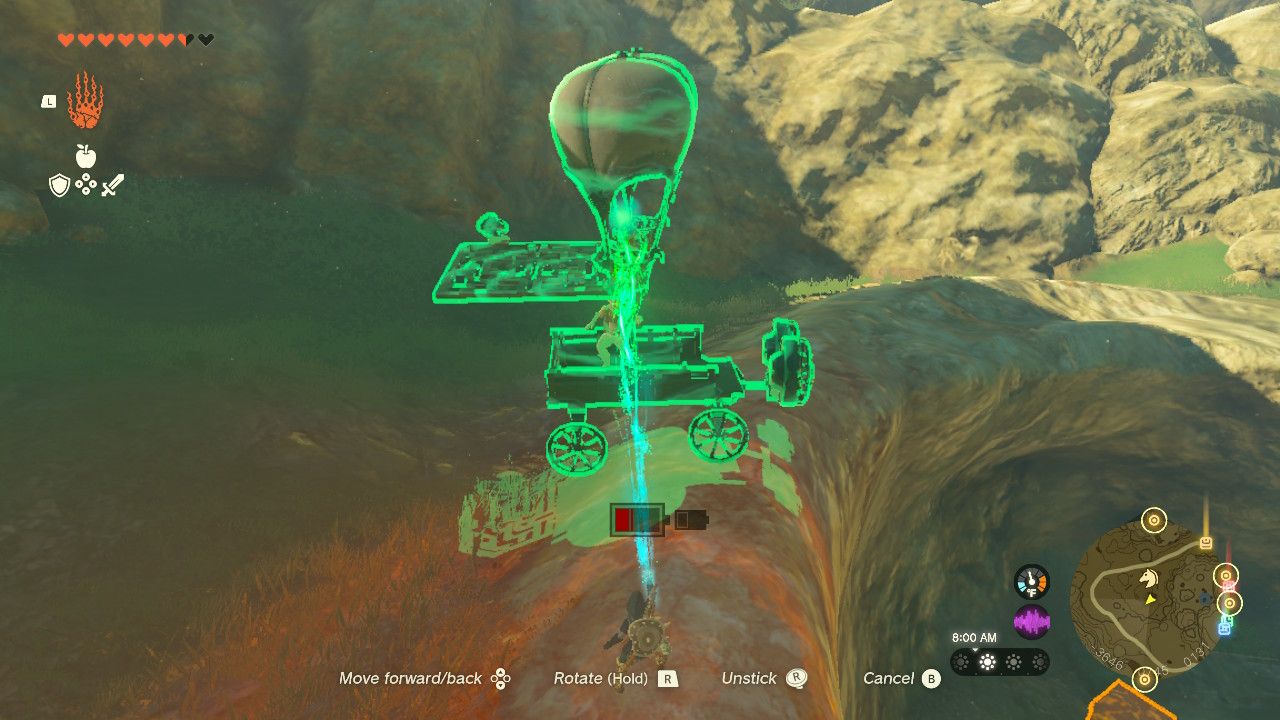This article contains MASSIVE SPOILERS for The Legend of Zelda: Tears of the Kingdom. Proceed at your own risk.
Many players of The Legend of Zelda: Tears of the Kingdom are still working their way through the massive open world game. As the largest Nintendo Switch release of 2023 so far, The Legend of Zelda: Tears of the Kingdom has reminded fans around the world why they loved Breath of the Wild, while also providing plenty of new reasons to appreciate its sequel. Chief among these is the new powers imbued in Link's arm, allowing for an enormous amount of player creativity that is still producing solutions and creations that seem unimaginable in the context of a Zelda game.
Ultrahand, Fuse, Ascend, and Recall make Tears of the Kingdom what it is. The new dungeons, mixing classic Zelda dungeons with BotW's Divine Beasts, and the remixed map with additional sky and underground layers offer a lot, but they aren't as integral as these abilities. Nothing else in TotK or its predecessor embodies modern Zelda's approach of absolute freedom better than such widely applicable tools. Their worst aspect isn't even tied to anything they can do, but rather the worry that they won't return, and what that could mean for future Zelda games.
Tears of the Kingdom May Have Wiped The Slate Too Clean
Up until the end of the final battle with Ganondorf, players have their four main arm abilities with them at all times. However, after all the Demon King's phases are defeated, the ending takes a surprising turn. Without much lead-up, Zelda reverts from her Light Dragon form and Link's original right arm is restored. This results in a great sequence calling back to Link reaching out to Zelda in Tears of the Kingdom's prologue, but it also creates some unfortunate implications.
In its haste to return to the status quo, Nintendo may have removed Link's powers too soon. With Rauru and Sonia's spirits passing on during said cutscene, Link has no way to access their abilities, which locks away his arm powers for good. This includes the ability to construct and operate Zonai machinery easier than anyone else. Essentially, the game mechanics that made Tears of the Kingdom what it was are scrapped by the story, and that could create serious problems for theoretical sequels or even other unconnected Zelda titles.
Zelda Has No Easy Way Of Recapturing TotK's Ultrahand
Having been compared to tools in Garry's Mod and Minecraft, Ultrahand alone created a new paradigm for player expression within Zelda. The versatility of Ultrahand and the game's rock-solid programming made for an unparalleled sandbox that existed within an even larger game ecosystem. Still, even this close to Tears of the Kingdom's launch, one wonders what future Zelda games will do to match it. At the very least, another Zelda title set in Breath of the Wild's Hyrule is unlikely, especially now that there isn't anything else within the kingdom's confines for Link to explore — or create with an absent Ultrahand.
That leaves the next major Zelda title in an unenviable position. Either it goes along with Tears of the Kingdom's decision to scrap mechanics like Ultrahand, attempting to carve its own path without them, or it needs to make up reasons to copy them in new forms. The level of contrivance involved in the latter will be obvious, and it will also suggest that the player expression of the Zelda series has peaked. It is too soon to count out the creative expertise of Nintendo, but fans have no way of knowing how the Zelda series can match Tears of the Kingdom's engineering feats until another title emerges in several years.
The Legend of Zelda: Tears of the Kingdom is available now for Nintendo Switch.

